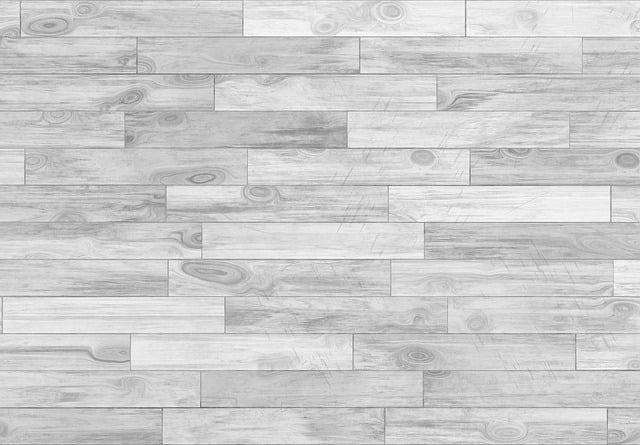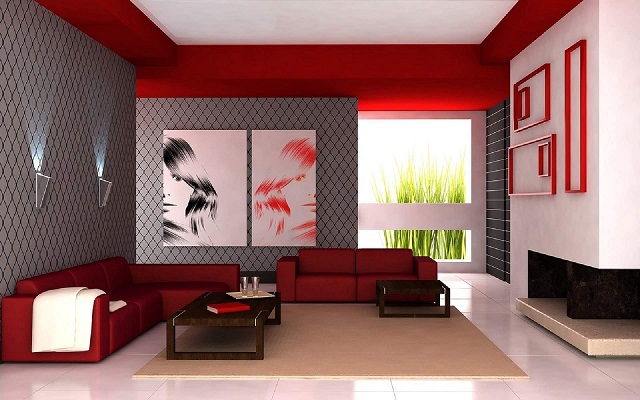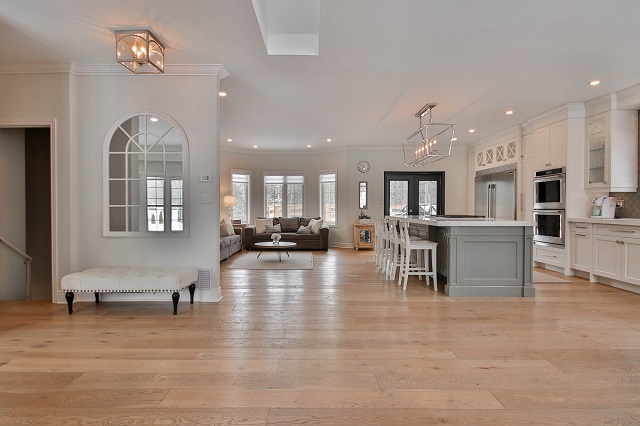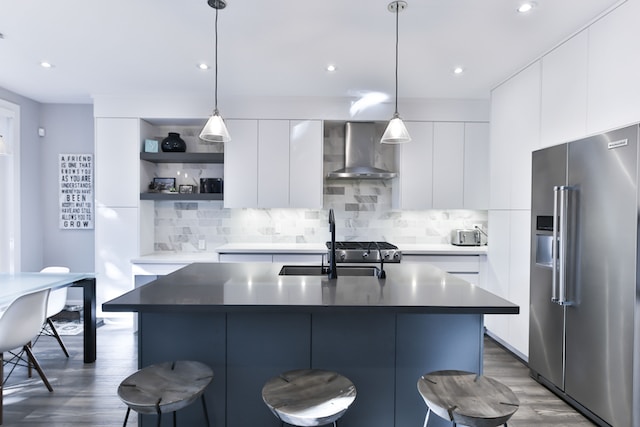Home Improvement: Enhancing Your Living Space
Table of Contents
Benefits of Home Improvement
Enhancing the appearance and functionality of your home through home improvement projects can bring about numerous benefits. One significant advantage is the potential increase in property value. By updating and renovating various aspects of your home, such as the kitchen, bathrooms, or outdoor spaces, you can attract potential buyers and command a higher selling price. Homebuyers are often willing to pay more for a well-maintained and modernized property, making home improvements a wise investment.
Additionally, home improvement projects can play a vital role in enhancing energy efficiency. Updating insulation, installing energy-efficient appliances, and incorporating eco-friendly materials can lead to substantial savings on utility bills. Not only will you be reducing your carbon footprint and helping the environment, but you will also be enjoying a more comfortable living space while saving money in the long run. From energy-efficient windows to smart thermostats, there are various options available to make your home more sustainable and energy-efficient through home improvements.
Increasing Property Value
Improving the value of your property is a goal that many homeowners strive for. By making thoughtful and strategic upgrades to your home, you can significantly increase its market value. One of the first areas to consider when attempting to boost property value is the exterior of your home. Enhancing curb appeal through landscaping, painting, or updating the entryway can make a strong first impression. Additionally, investing in energy-efficient windows and doors not only adds value but also offers potential buyers the benefit of reduced utility costs.
Another area to focus on when seeking to increase property value is the kitchen. As the heart of the home, the kitchen plays a crucial role in the overall appeal of a house. Consider upgrading outdated appliances with energy-efficient models, installing modern countertops and cabinetry, and adding a fresh coat of paint. These simple yet effective renovations can have a significant impact on the perceived value of your home.
Enhancing Energy Efficiency
In today’s world, where environmental concerns and energy conservation have taken center stage, enhancing energy efficiency in our homes has become more important than ever. By making simple changes and upgrades, homeowners can not only reduce their carbon footprint but also save money on their energy bills.
One effective way to enhance energy efficiency is by properly insulating the home. This includes insulating walls, attics, and ceilings to prevent heat loss or gain. Another key area to focus on is windows and doors. Upgrading to energy-efficient windows and sealing any drafts around doors can greatly reduce the amount of energy lost through these openings. Additionally, installing programmable thermostats and using energy-efficient appliances can further contribute to energy savings. By implementing these measures, homeowners can enjoy a comfortable living space while keeping their energy consumption in check.
Improving Comfort and Functionality
It goes without saying that one of the key reasons homeowners embark on home improvement projects is to enhance the comfort and functionality of their living spaces. Whether it’s upgrading outdated appliances, renovating a cramped bathroom, or creating a more open floor plan, these improvements can make a significant difference in how enjoyable and efficient a home is to live in.
When it comes to improving comfort, homeowners often focus on elements such as temperature control and noise reduction. Installing energy-efficient windows and properly insulating the walls can help regulate indoor temperatures and keep drafts at bay. Adding soundproofing materials to walls or investing in noise-cancelling windows can create a quieter and more peaceful living environment, especially for those who live in noisy neighborhoods or near busy streets. Additionally, incorporating smart home technologies, such as programmable thermostats or automated lighting systems, can greatly enhance comfort and convenience, allowing homeowners to easily adjust settings and create personalized schedules tailored to their preferences.
• Installing energy-efficient windows and properly insulating walls
• Adding soundproofing materials to walls or investing in noise-cancelling windows
• Incorporating smart home technologies, such as programmable thermostats or automated lighting systems
Tips for Successful Home Improvement Projects
When embarking on a home improvement project, it is essential to plan and budget accordingly. Start by evaluating the needs and goals of the project. Consider factors such as the desired outcome, timeline, and financial resources available. Creating a detailed plan will help keep the project on track and prevent unexpected issues or costs from arising. Additionally, setting a realistic budget ensures that you can complete the project without financial strain. By allocating funds for different aspects of the project, you can prioritize your spending and make informed decisions about which areas to invest in.
Choosing quality materials is crucial for the long-term success of any home improvement project. Poor quality materials may result in frequent repairs or replacements, ultimately costing more in the long run. Research various options and assess their durability, functionality, and aesthetic value. It is also important to consider factors such as maintenance requirements and warranties. Investing in high-quality materials will not only enhance the overall look and feel of your home but also contribute to its longevity and value. Remember, the materials you choose should align with your needs, preferences, and budget.
Plan and Budget
When embarking on a home improvement project, one of the most crucial steps is to carefully plan and budget your expenses. It is essential to have a clear vision of what you want to achieve and to determine the scope of the project. Take into consideration factors such as the size of your space, the materials needed, and any professional assistance required. By outlining these details, you can avoid unexpected costs and ensure a smoother execution of your plans. Researching prices of materials and labor is key to setting a realistic budget and avoiding overspending. It is also advisable to allocate some extra funds for any unforeseen expenses that may arise during the project.
Additionally, it is crucial to prioritize your needs and wants during the planning and budgeting phase. Evaluate which aspects of your home require immediate attention and determine a timeline for completion. This will help you allocate your budget accordingly and focus on areas that truly need improvement. Consider engaging with professionals who can provide their expertise to ensure that your plans align with your budget. They can also offer valuable advice on cost-saving measures and alternative options. Being thorough and meticulous in your planning and budgeting process will allow you to move ahead with confidence and make the most of your resources.
Choose Quality Materials
When embarking on a home improvement project, one of the key factors to consider is the choice of quality materials. The quality of materials used can significantly impact the overall outcome of the project and its durability. Opting for low-quality materials may save you money in the short term, but it often leads to frequent repairs and replacements in the long run. This can end up costing you more in the end. Investing in high-quality materials ensures that your home improvements will stand the test of time and provide you with lasting satisfaction.
When choosing materials for your home improvement project, it is crucial to prioritize durability and longevity. Look for materials that are known for their resistance to wear and tear, such as hardwood flooring or granite countertops. Additionally, consider the climate and environmental factors that your home is exposed to. For example, if you live in an area with high humidity, selecting moisture-resistant materials for your bathroom renovations is essential. By carefully selecting quality materials, you can create a home that not only looks aesthetically pleasing but also withstands the tests of time for years to come.
Hire Professionals
In any home improvement project, hiring professionals is often a wise decision. Whether you are planning a major renovation or a small upgrade, skilled professionals have the expertise and knowledge to deliver high-quality results. By entrusting your project to professionals, you can ensure that the work is done efficiently, effectively, and within the agreed timeline.
One of the main benefits of hiring professionals is their ability to handle complex tasks. For instance, if you are considering a kitchen remodel, professionals can navigate the intricate process of plumbing, electrical work, and cabinetry installation. They have the necessary skills to tackle these tasks, ensuring that everything is done right the first time. Additionally, professionals are equipped with the right tools and equipment, which further enhances their ability to deliver exceptional workmanship. So, if you want to avoid costly mistakes and ensure a seamless home improvement project, hiring professionals is the way to go.
Regular Maintenance
Regular maintenance is an essential aspect of owning a home. By regularly inspecting and maintaining various components of your house, you can prevent costly repairs and ensure that everything is in good working order. One crucial area to focus on is the HVAC system. It is important to clean or replace air filters regularly to maintain a healthy indoor air quality and optimize energy efficiency. Additionally, checking and cleaning the vents and ducts can enhance the overall performance and prolong the lifespan of the system.
Another area that requires regular maintenance is the plumbing system. Over time, pipes can develop leaks or become clogged, causing water damage and potential health hazards. To prevent such issues, inspect pipes for any signs of leaks or corrosion and fix them promptly. Flushing out the drains on a regular basis can also prevent clogs and maintain proper drainage. By keeping an eye on these basic maintenance tasks, you can significantly minimize the risks of expensive repairs and ensure a comfortable and functional home.
Research Trends
Home improvement trends are constantly evolving, as homeowners seek new ways to update and enhance their living spaces. One notable research trend in home improvement is sustainable and eco-friendly materials. With a growing awareness of environmental issues, more homeowners are turning to materials that are not only aesthetically pleasing but also have a minimal impact on the planet. From reclaimed wood flooring to energy-efficient appliances, there is a wide range of options available that allow homeowners to make eco-conscious choices while improving their homes.
Another research trend in home improvement is the integration of smart technology. As technology continues to advance, so does its application in our homes. Homeowners are now incorporating smart devices and appliances into their living spaces to enhance convenience and efficiency. From voice-controlled lighting systems to thermostats that learn and adjust to your preferences, smart home technology is revolutionizing the way we live. These innovations not only make daily tasks easier but also contribute to the overall functionality and comfort of our homes.
What are the benefits of home improvement?
Home improvement projects can bring several benefits such as increasing property value, enhancing energy efficiency, and improving comfort and functionality.
How does home improvement increase property value?
By updating and renovating different areas of your home, you can attract potential buyers and increase the resale value of your property.
What advantages does enhancing energy efficiency provide?
Improving energy efficiency can lead to reduced utility bills, a smaller carbon footprint, and a more comfortable living environment.
How does home improvement improve comfort and functionality?
Upgrading appliances, adding storage space, or remodeling rooms can enhance the overall comfort and functionality of your home, making it more enjoyable to live in.
What tips can you provide for successful home improvement projects?
It is important to plan and budget for your project, choose quality materials, hire professionals when needed, and regularly maintain your home after the improvements are done.
How should I plan and budget for a home improvement project?
Start by identifying your goals, prioritizing the improvements you want to make, and setting a realistic budget that includes both material and labor costs.
What should I consider when choosing quality materials for home improvement?
Look for materials that are durable, energy-efficient, and in line with the overall style and design of your home. Research and compare different options before making a decision.
Is it necessary to hire professionals for home improvement projects?
While some projects can be DIY, others may require the expertise of professionals, especially for tasks involving electrical, plumbing, or structural changes. Hiring professionals ensures the job is done correctly and safely.
Why is regular maintenance important after completing home improvements?
Regular maintenance ensures that the improvements stay in good condition and continue to provide the desired benefits. It helps prevent costly repairs and prolongs the lifespan of the improvements.
What research trends should I consider for home improvement?
Staying updated with research trends can help you make informed decisions about the latest technologies, materials, and design trends that can enhance your home’s value, energy efficiency, and overall appeal.







